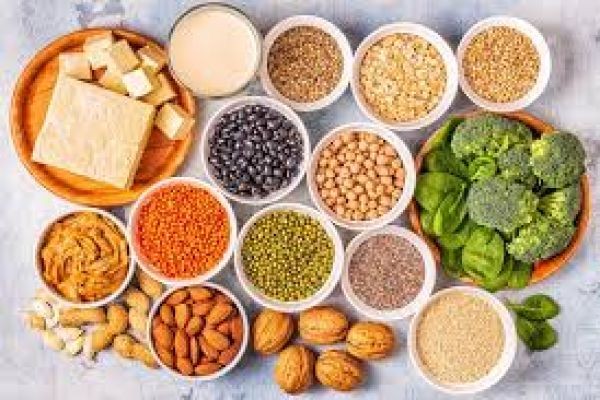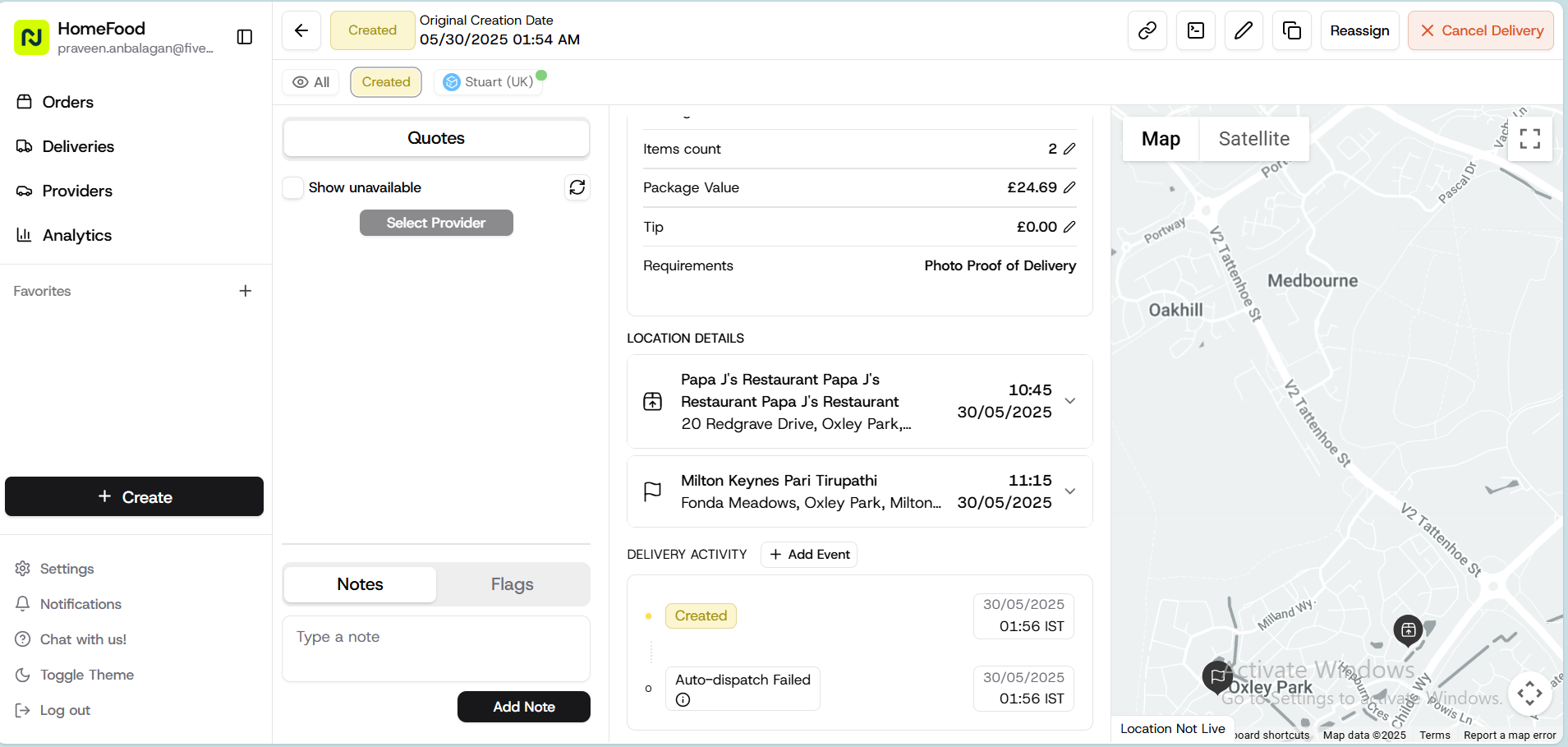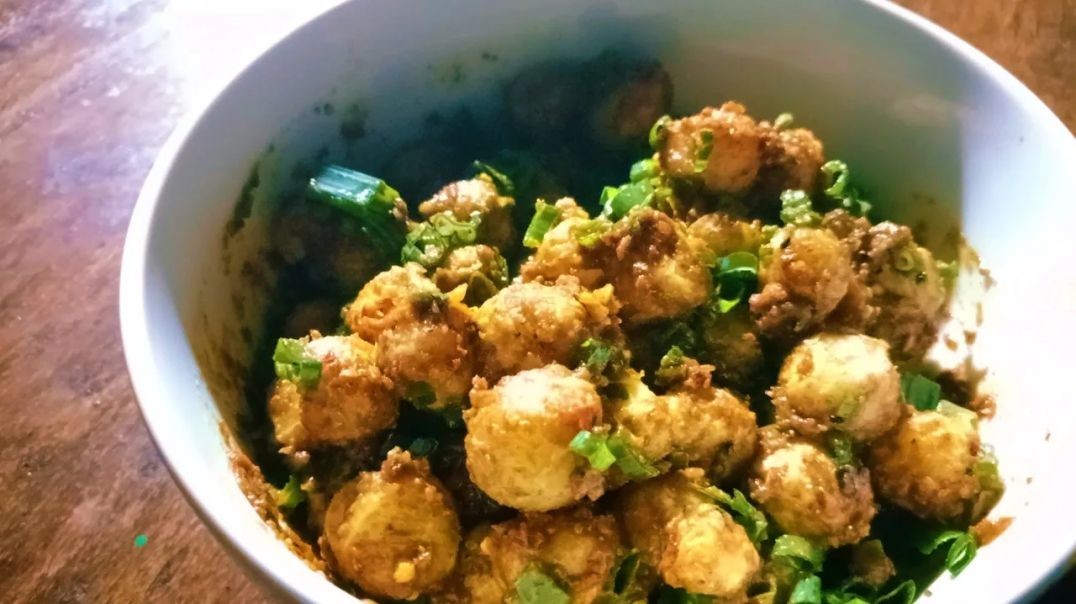1. Lentils: A Protein Powerhouse
Lentils are an excellent source of plant-based protein. One cup of cooked lentils contains about 18 grams of protein. They are also rich in fiber, iron, and folate, making them an all-around nutritional powerhouse. Lentils come in several varieties, such as red, green, and brown, and can be used in soups, stews, salads, or even made into lentil burgers or lentil-based pasta.
Ways to Use Lentils:
- Add them to soups and curries for a hearty meal.
- Make lentil salads with veggies, herbs, and a zesty dressing.
- Cook lentils as a filling for tacos or wraps.
2. Chickpeas (Garbanzo Beans): Versatile and Nutrient-Dense
Chickpeas are another fantastic plant-based protein source, providing about 15 grams of protein per cup when cooked. They are also high in fiber and contain essential vitamins and minerals like folate, iron, and magnesium. Chickpeas can be used in a wide variety of dishes, from Mediterranean hummus to Indian curries and veggie burgers.
Ways to Use Chickpeas:
- Blend them into hummus for a healthy snack or spread.
- Toss them into salads or grain bowls.
- Roast chickpeas for a crunchy snack or sprinkle over soups.
3. Tofu: A Vegan Staple with Endless Possibilities
Tofu is made from soybeans and is an incredibly versatile source of plant-based protein. A 4-ounce serving of tofu contains about 10 grams of protein. Tofu is also rich in calcium, iron, and magnesium. It can be prepared in many ways, from stir-frying and grilling to baking or blending into smoothies.
Ways to Use Tofu:
- Stir-fry tofu with vegetables and your favorite sauces.
- Grill or bake tofu for a savory protein-packed main dish.
- Blend silken tofu into smoothies or use it in desserts like vegan cheesecakes.
4. Tempeh: A Fermented Soy Product Rich in Protein
Tempeh, another soy-based product, is made from fermented soybeans and is a great source of protein, providing around 21 grams per 4 ounces. Tempeh is also a good source of probiotics due to the fermentation process, which is beneficial for gut health. The fermentation enhances the digestibility of the soybeans, making it easier for your body to absorb nutrients.
Ways to Use Tempeh:
- Slice and pan-fry tempeh to add to salads, sandwiches, or wraps.
- Crumble tempeh and use it as a meat substitute in tacos or chili.
- Marinate tempeh for a more flavorful and textured dish.
5. Quinoa: A Complete Protein Grain
Unlike most plant-based protein sources, quinoa is a complete protein, meaning it contains all nine essential amino acids required by the body. One cup of cooked quinoa provides about 8 grams of protein, along with fiber, iron, magnesium, and manganese. Quinoa is also gluten-free, making it a great option for those with dietary restrictions.
Ways to Use Quinoa:
- Serve it as a base for grain bowls with veggies, beans, and a protein-packed sauce.
- Use it as a side dish or in place of rice in many dishes.
- Mix it into salads or add to soups for extra texture and protein.
6. Edamame: Soybeans in Their Purest Form
Edamame, or young soybeans, are a great source of plant-based protein, offering around 17 grams per cup when cooked. They are also a good source of fiber, antioxidants, and healthy fats. Edamame makes a delicious and easy snack or appetizer, and they can also be added to salads, stir-fries, or grain bowls.
Ways to Use Edamame:
- Boil and sprinkle with sea salt for a simple, protein-rich snack.
- Toss edamame into salads or serve them as an appetizer with a soy-based dipping sauce.
- Stir-fry edamame with vegetables and tofu for a quick meal.
7. Hemp Seeds: Tiny Seeds, Big Protein Benefits
Hemp seeds are packed with protein, containing around 10 grams of protein per 3 tablespoons. In addition to protein, hemp seeds are rich in omega-3 and omega-6 fatty acids, making them great for heart health. They are also full of antioxidants, magnesium, and fiber. Hemp seeds are easy to incorporate into many dishes.
Ways to Use Hemp Seeds:
- Sprinkle them on top of salads, yogurt, or oatmeal.
- Add hemp seeds to smoothies or protein bars.
- Mix them into homemade granola or baked goods for an extra protein boost.
8. Chia Seeds: A Tiny Seed with Major Benefits
Chia seeds are another fantastic plant-based protein source. Just 2 tablespoons of chia seeds offer around 5 grams of protein, along with a good dose of omega-3 fatty acids and fiber. When mixed with liquids, chia seeds expand and form a gel-like consistency, making them ideal for puddings and smoothies.
Ways to Use Chia Seeds:
- Make chia pudding by soaking them overnight in almond milk or coconut milk.
- Add chia seeds to smoothies for a protein boost.
- Sprinkle them on top of oatmeal or yogurt for extra crunch.
9. Nuts and Nut Butters: Protein-Rich and Delicious
Nuts such as almonds, peanuts, walnuts, and cashews are excellent sources of plant-based protein. A quarter-cup serving of almonds provides around 6 grams of protein, while peanut butter offers about 8 grams per 2 tablespoons. Nuts and nut butters are also rich in healthy fats and provide a satisfying snack or ingredient in many dishes.
Ways to Use Nuts and Nut Butters:
- Spread almond or peanut butter on toast or use as a dip for fruits like apples.
- Add nuts to granola, oatmeal, or salads for a crunchy protein boost.
- Blend nut butters into smoothies for added creaminess and protein.
10. Seitan: The Vegan Meat Substitute
Seitan, made from gluten, is a high-protein meat alternative often used in vegan and vegetarian diets. It contains around 21 grams of protein per 3-ounce serving, making it one of the richest plant-based protein sources. It’s very versatile and can be sautéed, grilled, or used in stews and sandwiches.
Ways to Use Seitan:
- Use seitan as a meat substitute in stir-fries, sandwiches, or tacos.
- Grill or pan-fry it for a chewy, savory texture that mimics meat.
- Add seitan to curries, stews, or wraps for an extra protein-packed option.
Conclusion
Plant-based proteins are abundant and offer a wide variety of choices for vegetarians and vegans alike. From legumes and tofu to seeds and grains, there are many delicious and nutritious options to help you meet your protein needs. Incorporating a mix of these sources into your diet will not only support muscle growth and repair but also ensure that you get all the essential amino acids and nutrients your body needs for optimal health.










